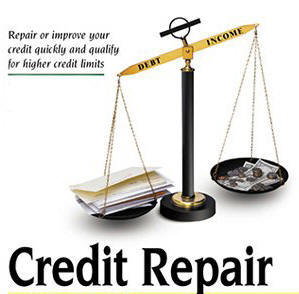

Randy Padawer (PsychDoc) is a clinical
psychologist whose research interests range from
personality testing to consumer credit. He has been featured in publications as
diverse as the
Journal of Personality Assessment, the Journal of Consulting and Clinical
Psychology, and
Smart Money Magazine. Dr. Padawer co-wrote the best-selling "FICO 850" seminar
for
The Motley Fool, and he has consulted for numerous companies and others
regarding
consumer behavior and credit reporting.
PsychDoc's Credit
Insider Guide to
CREDIT BUREAUS AND CREDIT REPORTS
Psychosis #1: The nature
of credit bureaus.
LET'S BEGIN with a startling notion: The credit bureaus don't want you to read
this. Why? Probably because those agencies, along with the much larger banking
institutions which depend upon them, desperately need consumers to buy into a
few oft-told myths which perpetuate their respective businesses. Unfortunately,
though, not knowing the truth can cost a consumer tens or even hundreds of
thousands of dollars during an average lifetime.
Where credit bureaus are concerned, there are essentially two sets of "truths."
On the one hand, there is the fairly meaningless happy patter they want you to
believe, which you can find repeated in just about every credit-related book and
Internet site. And then, of course, there's the real truth which I'll shortly
elucidate.
Unfortunately, in order to truly embrace stark reality we must first peruse the
prevailing fiction. So we'll examine both here. This article will aim to
demolish the social psychosis perpetuated by companies like Equifax, Experian,
and TransUnion and transport you to a veritable Valhalla of consumer mental
health. Even better, maybe you'll end up saving a few bucks too.
Psychosis #1: There are three official credit bureaus, and these beloved and
vital American institutions maintain accurate records regarding the financial
lives of every adult citizen.
There's so much wrong with practically every word of this fantasy that it's
tough for a consumer advocate to know where to begin.
First, the so-called "big three" consumer reporting agencies with which most
Americans are familiar ‹ Equifax, Experian, and TransUnion ‹ truly want
consumers to believe that they've each been blessed with a sanctioned franchise.
Actually, the only reason such corporate behemoths now dominate the landscape is
because their progenitors simply managed to swallow up each other as they
battled for preeminence through the decades. Greed, not official dictum,
paved their way. Even if you didn't click the
historical link in the previous sentence just now (and missed out on how, for
example, the company which became Equifax once used Welcome Wagon ladies to spy
for them), suffice to say there is hardly anything "beloved" about these
privacy-busting companies.
Moreover, there are indeed other, newer, credit bureaus on the horizon (with
names like Innovis, Lakeside, and NCTDE) which hope to eventually eclipse
today's major players. In fact, anybody who so desired could start their own
credit reporting agency, collect personal information about their friends and
neighbors, and then attempt to sell that data to whoever would be nosy enough to
purchase it. Sure, federal law puts limits upon what can be reported and to
whom, but nothing bars any one of us from entering the field outright
regardless.
So contrary to the prevailing perceptual reality, there are no official bureaus.
And while most Americans perceive their credit reports to have at least the same
legal standing as their driving records, the truth is that the government had no
role in establishing the for-profit companies which produce them. Put bluntly,
no law mandates a credit report's existence, and such documents deserve as much
respect as "The Weekly World News" supermarket tabloid or any other similarly
unproven list of allegations.
And what about the "accurate records" idea? Every serious study to date has
reached the same conclusion: Credit reports are simply rife with errors.
Psychosis #2: Your credit report is reviewed carefully.
That used to be true.
Once upon a time in America, if you applied for a credit account anywhere, a
bookkeeper in some dusty back room requested a credit report from your local
bureau. In fact, in those heady days before the corporate titans took over, all
credit bureaus were local. Then every line of your file would be assessed, and
if there was a problem, you might be telephoned or called in for more
discussion. Lo, you might even be asked for a personal pledge attesting to your
responsible intentions. Then a decision would be rendered, usually, but not
always, in your favor.
The problem with that business model is that it isn't very scalable. Scouring an
individual's credit report takes time, and it also takes skilled (with any luck,
that is) human beings to render careful judgments. Unfortunately for fair
decision-making, that's just not manageable if you want to extend credit to
hundreds of thousands or even millions of people on a national scale.
Automation, of course, must save the day, and technology hasn't yet allowed that
to include an individualized reading and analysis of everybody's credit reports.
That's where the credit score comes into play. A seemingly wonderful solution,
credit scores actually introduce a boatload of other
new problems.
So quash Psychosis #2 here and now. Of course the credit bureaus want consumers
to believe that things haven't changed, that life is as quaint as it was decades
ago, and that people actually pay attention to the report itself rather than
just a glorified number. In fact, the bureaus need consumers to believe that,
which takes us to our next bit of consumer psychopathology:
Psychosis #3: Including a
credit statement is helpful.
What sheep they believe us to be. In the early 1970s when the Fair Credit
Reporting Act first gave Americans the right to include such statements on their
reports, life was different. Prospective creditors still actually perused
consumer files with authentic human eyeballs. (Read Psychosis #2.) So in those
halcyon days of yore, a plaintive comment placed in the report by the consumer
herself might have made a difference at mortgage time.
No more.
Nowadays the 100-word statements can only harm the consumer. First, as we've
discussed, such personal statements are essentially never read by potential
creditors anyway since the credit score is the usual qualifying determinant.
Second, those statements only make it more difficult to embark upon a credit
repair effort later because they serve to confirm what's already there. So, for
example, let's say a consumer attaches a statement that reads something like
this: "These late payments were made only because I was suddenly laid off (or
sick), but that unfortunate situation changed very quickly, and we have never
been late with this or any other account since." That may sound responsible, but
unfortunately it says only this in reality: "NOTE: yes I really was late paying
these accounts. Plus I'm not smart enough to have an emergency fund to cover
basic minimum payments if something goes wrong financially. Therefore, I am a
bad credit risk."
Even worse, let's say a consumer subsequently learns something about credit
reporting and decides to engage Lexington Law Firm to help confront things
legally and technically. Whoops. The credit bureau is going to dismiss any new
challenge even faster than it would have before because there's no need to even
take another look: After all, it's right there in the consumer's statement which
admits fault. Remember that extenuating health or employment circumstances are
viewed as little more than lame excuses to these cold corporate entities anyway.
Most consumer advocate old-timers will advise that the first items to be
disputed are those silly 100 word statements if any were ever inserted. The
Credit Insider heartily concurs with that philosophy.
PsychDoc's Credit
Insider Guide to
CREDIT BUREAUS AND CREDIT REPORTS
Psychosis #4: Negative items must remain for 7 years.
That's sheer and utter balderdash. Even so, consumers hear it every day when
they telephone creditors directly: "Sorry, by law that has to remain on your
report for seven years." The next time you hear that, know this: The automaton
posing as a customer service representative is either spreading lies or
ignorance, neither of which is good for your fiscal or mental health.
Sure, the bureaus want consumers to believe the lie because they have based
their business plans upon reporting nasties to their subscribers, and they don't
want to run out of them. The truth, though, is that nobody is required to report
anything about any of us for any minimum length of time to anybody else. Put
bluntly, relevant laws like the Fair Credit Reporting Act only serve to place
LIMITS upon how consumer reporting agencies can and cannot behave.
PsychDoc's Credit Insider Guide to
CREDIT BUREAUS AND CREDIT REPORTS
Psychosis #5: Seeking help in repairing credit is unlawful.
Such statements are the most insidious and sickest lies of all. In fact, this is
the very same psychology a predator uses with his victim: "Here, I'm abusing
you, but follow my rules. You can't talk to others about it. You can't ask for
help. If you do request or receive help from someone else, you'll only suffer
more damage in the long run. Keep to yourself. Remember that I'll tell lies
about you if I wish. And if you have any problem with any of this, speak only to
me about it."
The facts cut straight to our constitutional citizenship: All of us have a
fundamental right to legal representation. Whenever we are accused of anything,
whether that accusation appears in the newspaper, on a rap sheet, on a credit
report, or anywhere else, we are guaranteed the right to request assistance with
both understanding and defending against such allegations.
Credit bureaus occasionally (and vaguely) suggest that using a third-party
violates some law. Sometimes, they'll send a letter to consumers who have
challenged one or more items on their reports that basically accuses them of
having sought outside assistance with the problem. Note that they never actually
come out and say plainly, "Using outside counsel is against the law," because it
isn't. Instead they simply invite the consumer to write back and deny the charge
or to implicate the third-party somehow in some unnamed wrongdoing. The specific
wrongdoing is never spelled out, of course, but the effect is the same: The
credit bureaus, by donning the cloak of artificial officialdom, hope to
intimidate consumers into backing down and getting right back into line with all
the other quiet people who are afraid to challenge their faux authority.
Lexington clients are instructed to simply send such letters to the firm, but
even those attempting to confront their credit reports on their own are well
advised to simply ignore such provocations.
So long as consumers can be managed through skilled deception, credit bureaus
will continue to unfairly profit at our expense. Reified credit scores will
continue to define our suitability for home ownership. Credit acquisition,
insurance, and employment will continue to be lost as a result of sloppy data
maintenance. Fundamental changes will only occur when consumers reject these
untruths which are propagated so successfully within our culture.
WE
WILL CHANGE
YOUR CREDIT LIFE FOREVER.
We have taken our years of experience and will show you how
to IMPROVE
YOUR CREDIT 100% GUARANTEED.
Many companies
who help
restore your credit charge you HUNDREDS OF DOLLARS.
We offer a quick solution at an affordable price.
![]() Buy a NEW CAR
Buy a NEW CAR
![]() Buy
a NEW HOUSE
Buy
a NEW HOUSE
![]() Go
on VACATION
Go
on VACATION
![]() Get
MARRIED in STYLE
Get
MARRIED in STYLE
![]() Start
your OWN BUSINESS
Start
your OWN BUSINESS
![]() ENJOY
LIFE FINANCIALLY WORRY FREE
ENJOY
LIFE FINANCIALLY WORRY FREE
So how do you know if you need our help? You need our help if you have had trouble with any of the following:
WHAT
IF YOU COULD JUST START ALL OVER?
Knowing if you had a second chance, you
would not
make the same mistakes again. Wouldn't it be nice to live in a
new 3 or 4
bedroom house, for less than what you are paying in rent? The
only thing
that separates a person that makes $200,000 a year; compared
to a person
that makes $30,000 a year, is information and knowledge.
REPAIR YOUR CREDIT NOW! Erase Negative Ratings off your Credit Report FOREVER! AAA Credit Rating in as little as 90 Days! Reduce past due accounts by as much as 90 percent and have the creditor give
you a positive rating for doing it
Benefits of Our System
|
|
A DARING AND UNIQUE OFFER!
Our intention is to provide you with the knowledge you need to permanently improve your credit file. The regular price is $189.00. It's worth many times this price if it does what we say. the problem is that many sincere people have had a hard time believing they can repair their credit permanently. We know we are telling the truth, but you don't know that yet.
We understand some credit
consultants didn't even come close to what they promised. That's why we
are going to make you a special offer. Order Credit Repair Secrets
first, before paying for it. We are so confident in our Credit Repair
knowledge that we know you will send the money after you have seen it.
However, we must ask for a small deposit. there are too many insincere
people who would order our Credit Repair Secrets because it's free and
then probably never even apply the secrets to repair their bad credit.
We want to do everything we can to help sincere people improve their bad
credit, but we don't want to lose money because of the others.
To get you started immediately, we must require a low one-time deposit of only $39.00. After you receive our Credit Repair Secrets, and see that you really can repair your bad credit file, only then do you have to pay the remaining balance. You be the judge. Your deposit covers our expense in sharing our credit repair secrets, and you will not be required or asked to pay for any additional information or instructions. Inasmuch as we would like to send you our credit repair secrets without the small charge, we must protect ourselves from those who are not serious and have no other intention other than to satisfy their own curiosity. Naturally, no business can afford to send out costly information and material to everyone who writes in asking for it. This small charge assures us that you are serious about wanting to repair your bad credit once and forever.
Even after you have examined our Credit Repair Secrets, and if you still have doubts, in repairing your bad credit, simply put off the remaining payment until you are 100% satisfied that your credit has been restored. We shall not send you any reminders for the balance of the payment, or any additional invoices, and we will give you the benefit of the doubt of being a sincere individual who wishes to learn the credit repair secrets, and will make payment of the balance when you are completely satisfied.
The way we see it is that the information and knowledge we have acquired over the years is worth thousands of dollars, far more than the amount we are charging. After all, this knowledge will stay with you for the rest of your life, and not only can you benefit from it yourself, you will be able to assist your family and friends who are in a similar situation. You get our knowledge at a Super Amazing one-time deposit of $34.95
Fastest Service Pay With Google Checkout
REGULAR PRICE
GET TODAY'S SPECIAL PRICE

![]()
![]()
![]()
£14.20 $34.95 €20.70
$189.00
REPAIR BAD CREDIT
AUTOLOAN
CREDIT CARD LOAND
MONEY
NEW CREDIT
HOW TO REPAIR BAD CREDIT
GET GOOD CREDIT
NEW LOAN
BAD CREDIT AUTO
LOAN
CREDIT CARD BANKRUPTCY LOAN
FIX BAD CREDIT
THE
ONLY
WAY TO
REPAIR
YOUR CREDIT
BAD CREDIT AUTO
